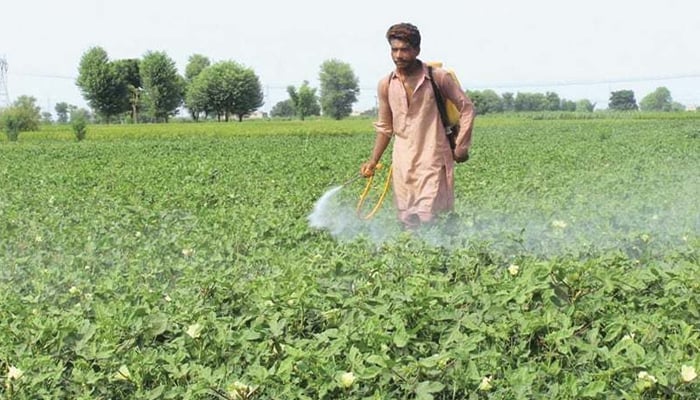Monitoring of environmental laws stressed
Islamabad : Robust monitoring of environmental regulations as well as protection of labour rights is crucial for a just and sustainable transition in the construction industry.
This was the crux of a panel discussion on ‘Socially and environmentally compliant construction industry in Pakistan’ organised by Sustainable Development Policy Institute (SDPI) in collaboration with NED and SC here yesterday.
Geir Thomas Tonstol, Country Director of International Labor Organisation, Pakistan, said that the construction sector transforms source materials into capital assets contributing significantly to economic activity and thus holds immense potential for poverty reduction and income generation. However, he said, the lack of specialised skills and high risks of occupational hazards made it one of the riskiest sectors globally.
High prevalence of informal employment further weakens the social security and workers' rights, he said adding that coordinated efforts are required by the government, employers and workers with initiatives focusing on promoting greater compliance and fostering decent working conditions in the construction industry in Pakistan.
Dr Saifullah from Development Impact Solutions, highlighting the hazardous working conditions in brick kiln industry, said that out of 4.4-5.2 million brick kiln workers, 68% are doing bonded or forced labour, with 19% being under 18 years of age. The industry employs an estimated 1.3 million workers, including 23% women, with 69% dedicated to moulding. He called for enhancing productivity by introducing new technologies to reduce occupational and environmental hazards.
Khalid Mahmood, Director, Labour Education Foundation, stressed the need to protect workers' rights for a truly just transition.
Malik Najaf Khan from Sindh People's Housing for Flood Affectees, remarked that land rights are at the heart of the reconstruction efforts and called for empowering affected people through ownership, particularly for women and vulnerable households.
Mehar Abdul Haq Brick Kilns Owners' Association Pakistan, called for eco-friendly technologies in kilns, such as Zig Zag, for emissions reduction, energy conservation and enhanced environmental sustainability.
He also called for enhancing registration kilns workers with the government institutions concerned particularly social protection institutions and strict enforcement and compliance of labour laws, safety standards, and environmental regulations within the brick kiln industry. He suggested providing capacity building training for brick kiln workers, regarding environment-friendly and safer brick-making techniques, health safety and labour rights and incentivising the adoption of eco-friendly technologies.
He emphasised to ensure strict adherence to labour laws and the protection of workers' rights within the brick kiln industry and foster collaborative partnerships between government agencies, non-governmental organisations, industry associations and international bodies to develop and implement policies that support environmentally compliant brick kilns.
-
 Jaden Smith Walks Out Of Interview After Kanye West Question At Film Premiere
Jaden Smith Walks Out Of Interview After Kanye West Question At Film Premiere -
 Why Halle Berry Wasn't Ready For Marriage After Van Hunt Popped Question? Source
Why Halle Berry Wasn't Ready For Marriage After Van Hunt Popped Question? Source -
 Michelle Obama Gets Candid About Spontaneous Decision At Piercings Tattoo
Michelle Obama Gets Candid About Spontaneous Decision At Piercings Tattoo -
 Bunnie Xo Shares Raw Confession After Year-long IVF Struggle
Bunnie Xo Shares Raw Confession After Year-long IVF Struggle -
 Brooks Nader Reveals Why She Quit Fillers After Years
Brooks Nader Reveals Why She Quit Fillers After Years -
 Travis Kelce Plays Key Role In Taylor Swift's 'Opalite' Remix
Travis Kelce Plays Key Role In Taylor Swift's 'Opalite' Remix -
 How Jennifer Aniston's 57th Birthday Went With Boyfriend Jim Curtis
How Jennifer Aniston's 57th Birthday Went With Boyfriend Jim Curtis -
 JoJo Siwa Shares Inspiring Words With Young Changemakers
JoJo Siwa Shares Inspiring Words With Young Changemakers -
 James Van Der Beek Loved Ones Breaks Silence After Fundraiser Hits $2.2M
James Van Der Beek Loved Ones Breaks Silence After Fundraiser Hits $2.2M -
 Disney’s $336m 'Snow White' Remake Ends With $170m Box Office Loss: Report
Disney’s $336m 'Snow White' Remake Ends With $170m Box Office Loss: Report -
 Travis Kelce's Mom Donna Kelce Breaks Silence On His Retirement Plans
Travis Kelce's Mom Donna Kelce Breaks Silence On His Retirement Plans -
 Premiere Date Of 'Spider-Noir' Featuring Nicolas Cage Announced
Premiere Date Of 'Spider-Noir' Featuring Nicolas Cage Announced -
 Pedro Pascal's Sister Reveals His Reaction To Her 'The Beauty' Role
Pedro Pascal's Sister Reveals His Reaction To Her 'The Beauty' Role -
 Kate Middleton Proves She's True 'children's Princess' With THIS Move
Kate Middleton Proves She's True 'children's Princess' With THIS Move -
 Paul Anka Reveals How He Raised Son Ethan Differently From His Daughters
Paul Anka Reveals How He Raised Son Ethan Differently From His Daughters -
 'A Very Special Visitor' Meets Queen Camilla At Clarence House
'A Very Special Visitor' Meets Queen Camilla At Clarence House




